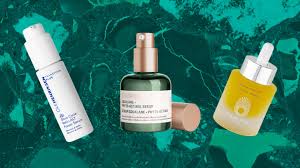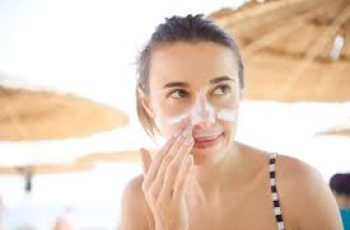
What Is Bakuchiol and What Are Its Skincare Benefits?
Bakuchiol is a natural antioxidant with powerful effects on the skin. It has been used in traditional Chinese and Indian medicine for centuries, but is only recently gaining popularity in Western skincare.
Let’s explore what makes this ingredient special.
What Is Bakuchiol Made Of?
Bakuchiol is extracted from the seeds and leaves of the Psoralea corylifolia plant, commonly known as the Babchi plant.
This plant has been used for hundreds of years in traditional medicine to treat various skin ailments due to its anti-inflammatory, antibacterial, and antioxidant properties.
While bakuchiol may seem like a new skincare ingredient, scientific research has confirmed its benefits since around 2014.
It is now recognized as a safe and effective alternative to retinol, offering many similar advantages without the harsh side effects.
What Does Bakuchiol Do for the Skin?
Bakuchiol works in multiple ways to improve skin health. Studies show it can reduce fine lines and wrinkles as effectively as retinol but with much less irritation, making it suitable for sensitive skin types.
As a powerful antioxidant, bakuchiol protects the skin from environmental damage caused by pollution, sun exposure, and climate stressors.
This helps preserve the skin’s natural barrier and prevents premature aging.
Here is a list of key skin benefits bakuchiol can offer:
Helps fight uneven skin tone and pigmentation
Reduces visible signs of aging such as fine lines and wrinkles
Accelerates skin cell regeneration for a brighter, more youthful complexion
Provides anti-inflammatory effects to soothe irritated skin
Exhibits antibacterial properties helpful for acne-prone skin
Boosts collagen production to restore skin firmness
Improves skin texture, leaving it smoother and more refined
Suitable for sensitive skin due to its gentle nature
Because bakuchiol shares many benefits with retinol but is gentler, it is an excellent choice for those who find retinoids too harsh or irritating.
How to Use Bakuchiol Oil
Bakuchiol oil is often diluted with a carrier oil such as coconut oil. This helps it spread more easily and penetrate deeply into the skin’s lower epidermal layers.
To use bakuchiol oil:
Take a few drops of bakuchiol oil as needed.
Mix with an equal amount of coconut oil or your preferred carrier oil.
Apply the mixture to targeted areas of the face 4-5 times a day.
You can also find bakuchiol in serum form, which is used after cleansing and before moisturizing. Both forms provide similar skin benefits.
How Is Bakuchiol Different From Retinol?
Retinol, a derivative of vitamin A, has long been praised for its anti-aging effects but often causes skin irritation, redness, and dryness.
Bakuchiol provides a gentler alternative that can be used daily without the need to “build tolerance.”
Additionally, bakuchiol works well alongside other ingredients that might irritate the skin when paired with retinol.
It is more stable in sunlight, so it can be safely used during the day—something retinol cannot do.
How Long Does It Take for Bakuchiol to Work?
When used regularly, most people see noticeable improvements in their skin within about 12 weeks.
Applied twice daily, bakuchiol helps restore elasticity, diminish wrinkles, and reduce hyperpigmentation.
Over time, this results in a smoother, firmer, and more radiant complexion.
Can You Use Bakuchiol During the Day?
Yes! Unlike retinol, bakuchiol does not break down when exposed to UV rays, which means it can be applied safely during daytime skincare routines.
Still, it’s important to use sunscreen with at least SPF 30 when using bakuchiol to protect the skin from sun damage and maximize its anti-aging benefits.
Is Bakuchiol as Good as Retinol?
Though bakuchiol and retinol are different compounds with distinct chemical structures, they deliver similar results for skin aging concerns.
They work equally well to reduce fine lines, wrinkles, and other signs of aging. Interestingly, they complement each other well.
Using them together can provide a powerful effect while reducing the irritation often caused by retinol alone.
Bakuchiol helps soothe and stabilize retinol’s activity on the skin, improving tolerance and allowing for better results with fewer side effects.
Why Is Bakuchiol Gaining Popularity?
Bakuchiol’s rise in the skincare world can be attributed to the increasing demand for natural, vegan, and gentle skincare alternatives.
More consumers are paying close attention to the ingredients in their products, looking for those with proven benefits but without harsh side effects.
For many people, retinol can cause allergic reactions or irritation. Bakuchiol offers a simpler, safer solution to address multiple skin concerns without these issues.
This natural ingredient fits perfectly with the growing trend of clean beauty, making it a must-try for anyone looking to improve their skin health naturally.
How to Incorporate Bakuchiol Into Your Routine
Start by introducing bakuchiol products gradually, especially if you have sensitive skin. Use the serum or oil after cleansing and before moisturizing.
Because bakuchiol is gentle, there is no need for a slow build-up period like with retinol, so you can use it daily from the start.
Pair bakuchiol with other gentle ingredients like hyaluronic acid and niacinamide to boost hydration and skin barrier support.
Always follow with broad-spectrum sunscreen during the day to protect your skin and enhance the benefits.
Who Should Use Bakuchiol?
Bakuchiol is suitable for all skin types, including sensitive, dry, oily, and acne-prone skin.
If you have reactive skin that can’t tolerate retinol or other chemical exfoliants, bakuchiol provides a wonderful alternative that delivers many of the same results without irritation.
It is also a great choice for those seeking anti-aging benefits but wanting to avoid the typical redness and peeling associated with retinoids.
Potential Side Effects
Bakuchiol is generally very well-tolerated. However, as with any skincare ingredient, some people may experience mild reactions like redness or irritation.
If you notice any discomfort, reduce frequency of use or stop applying it and consult a dermatologist.
Performing a patch test before full application is always recommended to ensure no allergic reactions occur.
Final Thoughts
Bakuchiol is a game-changing skincare ingredient that combines the best of traditional herbal medicine with modern scientific research.
It offers multiple benefits such as anti-aging, antioxidant protection, acne control, and improved skin texture—all while being gentle and safe for daily use.
With its growing popularity and extensive benefits, bakuchiol is a wonderful addition to any skincare routine, especially for those looking for a natural, effective alternative to retinol.
By embracing bakuchiol, you can enjoy clearer, firmer, and more radiant skin without the irritation often caused by harsher products.


